Your pantry is stocked with canned goods to prepare for emergencies or unexpected events. But have you given thought to how long those cans will last? Not all of them have the same shelf life, so which canned food lasts the longest?
Low-acid canned foods that are adequately prepared, sealed, and processed last the longest. Canned meats and fish last the longest, followed by beans, rice, vegetables, pasta, and fruits.
To know why these food items need to be in your list, read on to learn more.
Quick Navigation
- Canned Meat: Chicken, Beef, and Fish
- Canned Vegetables: Corn, Carrots, and Peas
- Canned Beans: Chickpeas, Lima Beans and More
- Canned Rice
- Canned Soups and Stews
- Canned Fruits
- Canned Pasta
- Canned Condiments
- Canned Milk
- The Longest Lasting Canned Foods
- How to Make Canned Goods Last Longer
- Conclusion
Canned Meat: Chicken, Beef, and Fish
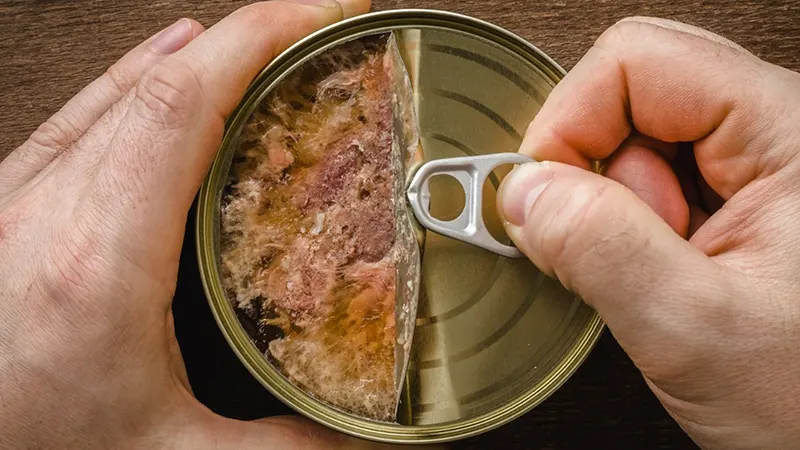
Shelf Life: 4–10 years
Meat is the best option for canned items and one of the cheapest foods that last a long time. Whether chicken, beef, or fish, you can keep canned meats for four to ten years.
Canned Chicken
Canned chicken is a prepper’s favorite. It’s a lean protein source that you can use for everything. Look for low-sodium options and avoid heavily processed versions with lots of additives. Chicken can last up to 5 years.
Canned Beef
The shelf life of canned beef, like corned beef hash or chili, is at least three years. Chili and stews are convenient options for a quick meal.
Just heat and serve. Choose less seasoned varieties without many sauces or gravies for extended shelf life.
Canned Fish
Canned fish, like farm fish and wild fish, contain healthy omega-3 fast lasting 2–5 years. Tuna and salmon are great for sandwiches and casseroles.
Sardines have lots of calcium and can be eaten straight from the can with some crackers.
Canned Vegetables: Corn, Carrots, and Peas
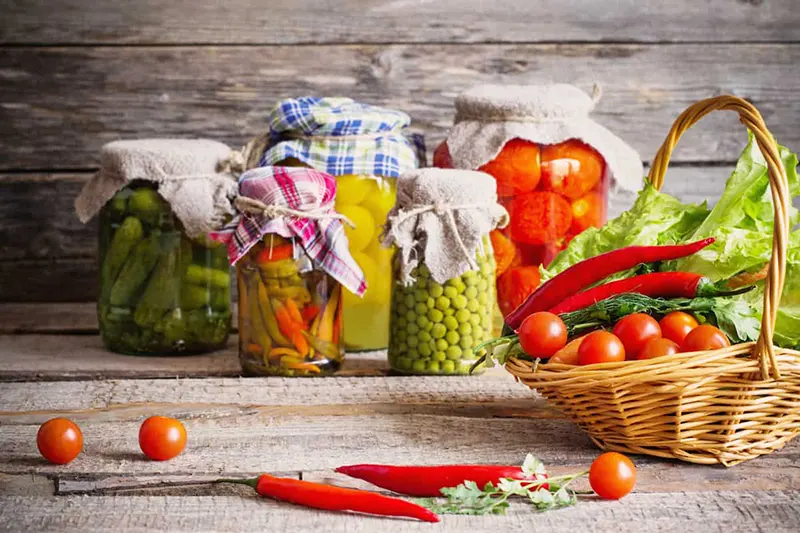
Shelf Life: 2–5 years
Canned vegetables are a staple for any prepper’s pantry because they have an incredibly long shelf life and provide essential nutrients.
The best options to stock up on are corn, carrots, and peas.
Corn and Carrots
Whole kernel corn and creamed corn can last 2–5 years. Corn is high in fiber and vitamin C. Look for low-sodium or no-salt-added varieties.
Canned, sliced, or diced carrots will last up to 5 years. Carrots provide vitamin A, vitamin K, and antioxidants.
Peas
Canned peas, whether regular green peas or petit pois, can last 2–5 years. Peas contain protein, fiber, vitamin K, folate, and other B vitamins.
Peas lose some nutritional value and change in texture during the canning process, so also stock up on frozen peas that last 10–12 months.
Vegetables can be a lifesaver when other food sources are limited. Select low-sodium products, and keep cans out of intense heat and in a cold, dry location to retain quality.
Before eating, drain and rinse your vegetables to get rid of extra salt. High-acid canned vegetables, such as pickled vegetables, often have a shorter shelf life of 12 to 18 months.
Canned Beans: Chickpeas, Lima Beans and More
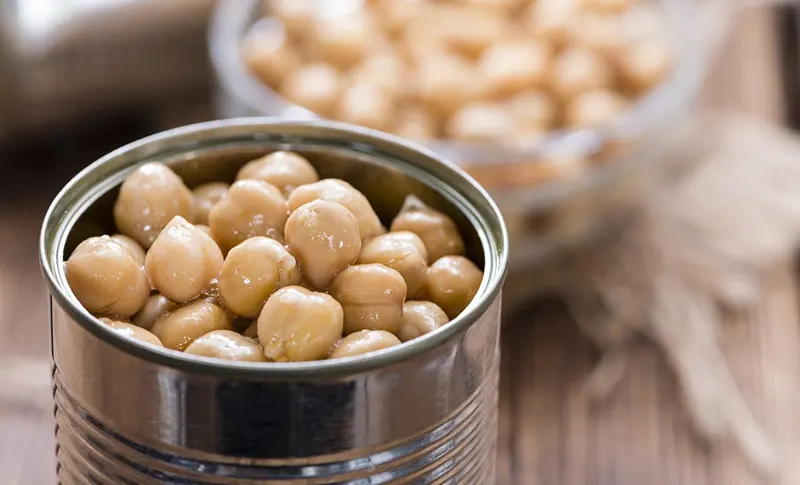
Shelf Life: 3-6 years
Canned beans are a prepper’s best friend. Chickpeas or garbanzo beans are great in salads and hummus.
Black and navy beans are perfect for burritos, chili, and rice and bean dishes. They have a robust, earthy flavor and soft, creamy texture. Just be sure to choose low-sodium.
Kidney and pinto beans have a robust, meaty flavor and hold well in long-simmered dishes like chili and stew. They’re also commonly used in Cajun cuisine.
The great thing about canned beans is they’re ready to eat after opening – just drain and rinse them. You can also simmer them with chili peppers for extra flavor. Canned beans make a perfect substitute for dried beans when you’re short on time.
Stock up on various baked beans, and you’ll have a shelf-stable source of protein to add to any dish.
Canned beans can be delicious and satisfying with the right spices and flavors. Choose cans with no dents or rust for the peak quality and use within 1–2 years of the expiration dates.
Canned Rice
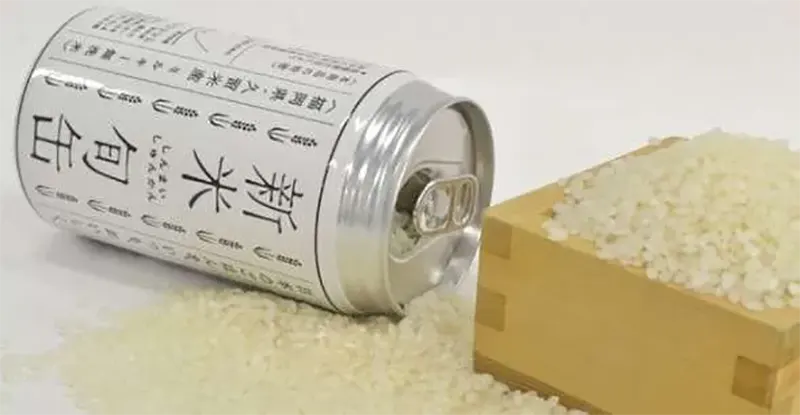
Shelf Life: 2–6 years
Many societies rely heavily on rice as a dietary staple. Both canned and uncanned rice contains these nutrients, albeit canned rice has a lower concentration.
The lower nutritional value of each rice may vary, although only a little. The benefit of canned rice is that it is simple to make in an emergency.
Eating it straight out of the can and briefly heating it in a skillet are safe and effective options. However, it has a lower shelf life than uncanned rice.
Unlike canned rice, which only lasts for a few years, uncanned rice may, when kept correctly, last for over a decade.
Canned Soups and Stews

Shelf Life: 2–5 years
Canned soups and stews last long and provide a hearty, comforting meal when other options are scarce.
With beef, potatoes, carrots, and canned broth, beef stew is a filling meal. Most canned beef stew lasts at least 2-5 years. Popular brands like Dinty Moore, Hormel, and Campbell’s are available at most grocery stores.
Minestrone is a vegetable-based canned soup that typically contains beans, pasta, and tomatoes in a broth. Canned minestrone can last 2–5 years.
Progresso, Campbell’s, and store brands offer minestrone with veggies and little to no meat. For vegetarians, minestrone is a good-canned soup to have on hand.
Comforting tomato soup is always a good choice. For extra nutrition, choose a version with no high fructose corn syrup.
You can also dress up canned tomato soup by adding grilled cheese sandwiches, pasta or rice, and milk or cream (for a creamy tomato soup).
Canned soup is ideal for emergency food stockpile and everyday meals. Be sure to rotate and replace cans every 1-2 years to ensure maximum quality and freshness.
Canned Fruits
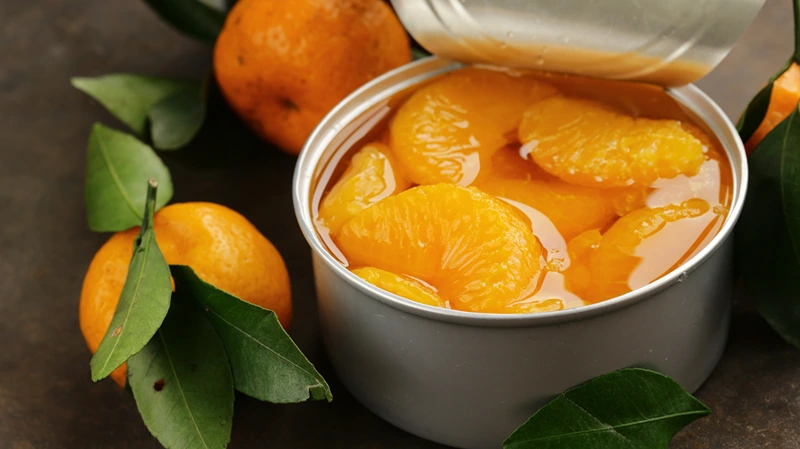
Shelf Life: 1–3 years
Canned fruits like peaches, pears, and pineapples will last years when stored correctly, making them excellent options for your emergency food supply.
Peaches
Canned peaches will last 1-3 years. Look for peaches packed in syrup, juice, or water. Avoid “natural pack” or peaches in light syrup, as these have a shorter lifespan of only 12-18 months.
Check that the can shows no dents, rust, or bulging before purchasing. Store food in a dry and cool location.
Pears
Canned pears will last 1–3 years. Like peaches, choose pears in syrup, juice, or water. Pears in syrup tend to hold texture better over long storage.
Avoid natural or light packs, lasting only 12–18 months. Pears may start to get soft beyond two years, but will remain shelf-stable for many years.
Pineapple
Canned pineapple chunks or slices can last 1–3 years. Pineapple in syrup lasts the longest, up to 5 years. Pineapple in its juice will last 2–3 years.
Check cans for any dents or bulges before purchasing. For best taste, use within 24 months. Pineapples may start to get soft beyond two years, but will remain shelf-stable for longer.
With proper storage, these canned fruits can provide a sweet treat for years to come in an emergency. Make sure to know the expiration date and rotate your stock by using within 24 months and replacing.
Canned Pasta
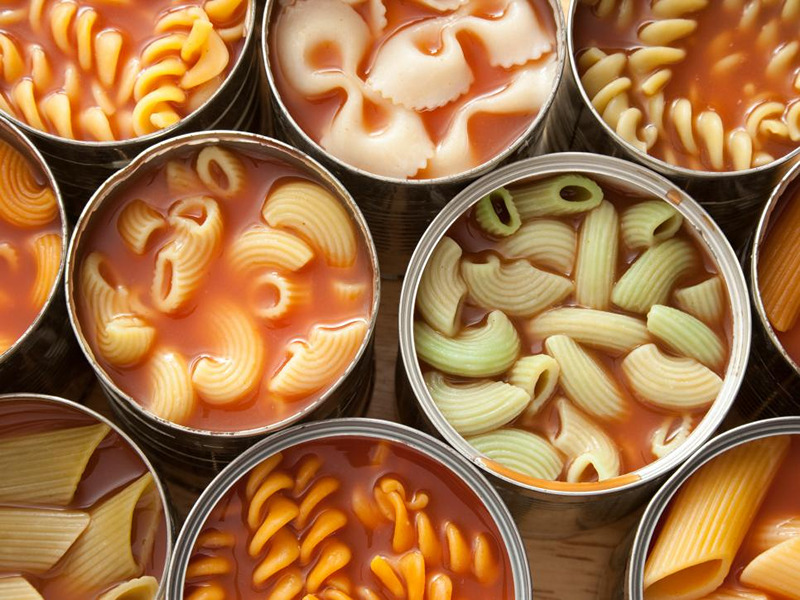
Shelf Life: 2–5 years
Canned pasta can be a lifesaver in an emergency when options are limited. Choose trusted brands with recognizable ingredients for the best nutrition and regularly check expiration or ‘best by’ dates.
Ravioli and Spaghetti
Canned ravioli and spaghetti are pasta pillows or strands in a tomato sauce. Popular brands like Chef Boyardee, Progresso, and Hunt’s are pre-cooked, so you just have to heat and serve.
Look for cans with an easy-open lid and check ‘use by’ dates. After opening, consume within 3–5 days.
Macaroni and Cheese
Canned macaroni and cheese are also pre-cooked; just heat and stir in the cheese sauce. Brands like Hormel, Wolf Chili, and Stagg are shelf-stable for at least 2–5 years.
Shake or stir the can before opening it to distribute the cheese sauce. Add extra cheese, ham, broccoli, or spices to boost nutrition and flavor. Use within one week of opening.
While high in sodium, canned pasta can be part of a balanced emergency food supply. Look for low-sodium or no-salt-added options and compare nutrition facts.
Ravioli and spaghetti average 200–500 calories and 10–25 grams of protein per can. Macaroni and cheese provide 300–500 calories and 10–20 grams of protein.
Canned Condiments
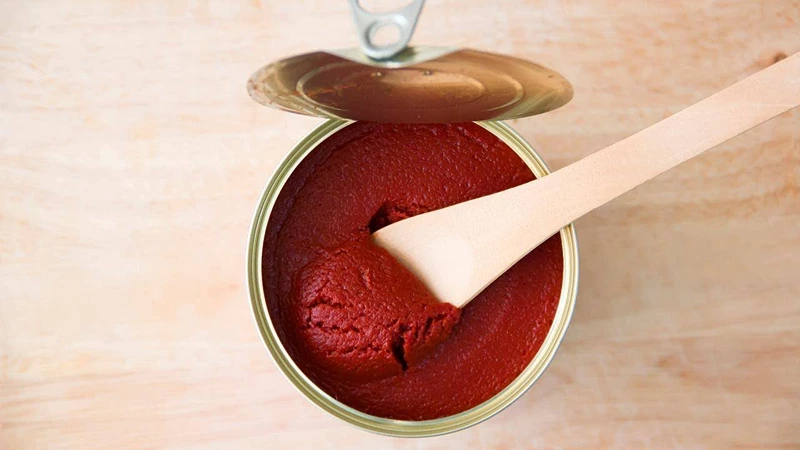
Shelf Life: 2–3 years
Canned condiments like tomato paste and mustard have a long shelf life. These acidified canned foods are less prone to spoilage and last many years. They also go through commercial sterilization.
Tomato Sauce and Ketchup
With a pH of 4 to 5, tomato paste and ketchup are acidic and do not support microbial contamination. These tomato-based condiments may last up to 3 years.
Look for cans or bottles that say “best by” and avoid dented, rusted, or bulging. Once opened, when refrigerated, tomato paste and ketchup will last 6–8 months.
For the best option, look for tomato paste and ketchup with no preservatives. These products may separate or thicken over time; stir before using.
Mustard
Mustard is also highly acidic. It contains natural preservatives like vinegar, salt, and spices that prevent the growth of bacteria. Once opened, mustard will last 6-8 months when refrigerated.
With proper storage, canned condiments like tomato paste, ketchup, and mustard can provide flavor for your emergency food stockpile for many years.
Be sure to date cans or bottles upon opening and use refrigerated products within 6–8 months for best quality and food safety
Canned Milk
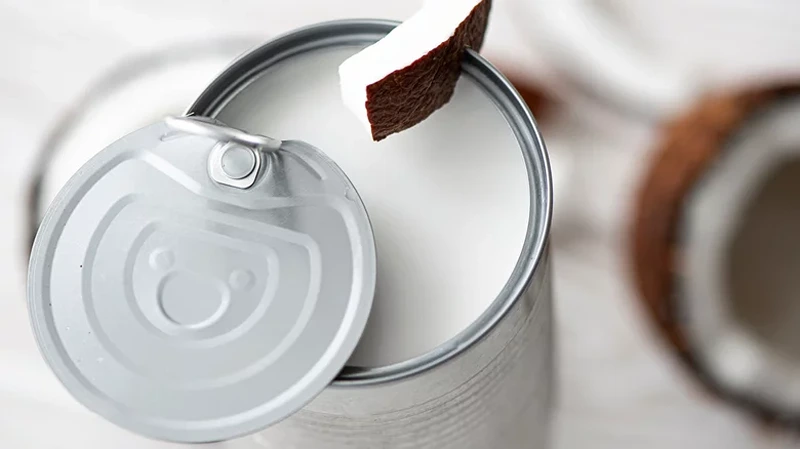
Shelf Life: 2–5 years
Canned dairy products have an exceptionally long shelf life and are ideal for emergency food storage.
Preppers’ emergency stockpile may find canned powdered milk to be a suitable alternative. Because of its longer shelf life, it is a dependable choice in emergencies or when fresh milk may not be available.
Canned coconut milk will last 2-5 years. Look for full-fat coconut milk with minimal additives for the most extended shelf life
Canned dairy products give you versatility and long shelf life, so stock up and enjoy the convenience and peace of mind with a well-prepared pantry.
The Longest Lasting Canned Foods
Be sure to know the longest shelf life when stocking the best canned foods. Some canned foods have a reputation for longevity, but which are the longest-lasting canned foods?
For Meat: Spam and Beef
Canned meats like Spam, corned beef, and beef stew can last up to 5 years and are considered the best canned foods. Spam is very shelf-stable. Look for low-sodium versions if possible.
For Soup: Chicken and Vegetable
Canned soup with a lot of salt like chicken noodle, minestrone, tomato and chili lasts up to 5 years and is also the best canned food to stock. For the best taste, use within 12-18 months.
For Fruits: Fruit Cocktail and Pineapple
Canned fruit in heavy syrup like applesauce, fruit cocktail and pineapple rings can last 2-5 years. The high sugar content helps prevent spoilage.
For Vegetables: Green Beans and Corn
Non-pickled canned veggies like green beans, corn, and beets last 2-5 years. Low-acid vegetables have a longer shelf life. For the best quality, use within 12-18 months.
Avoid dents, rust, or bulges that can indicate spoilage. Use canned goods within 6-12 months for best quality. After opening, use immediately and check that the food smells normal, with no slimy or moldy textures before eating.
How to Make Canned Goods Last Longer
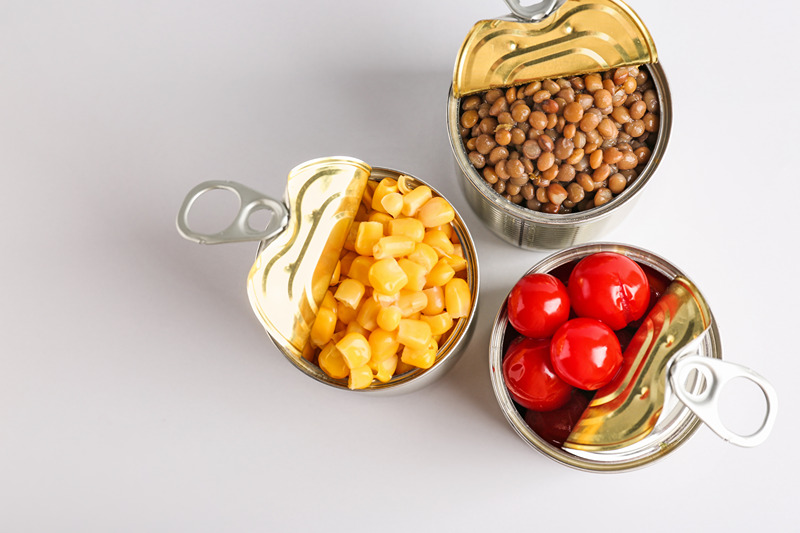
Four essential factors—humidity, air, light, and temperature—are the secret of the lifespan of canned foods.
Keep the humidity low.
Low humidity prevents damage to the cans, extending the shelf life of canned vegetables. Your cans will last much longer if you maintain them at 15% less humidity.
Keep it cool.
Keep your perishable foods at 75°F. The shelf life of canned foods may extend to a year with proper storage. Even if the product’s quality, color, and texture change, its nutritional content may endure much longer.
Avoid tampered cans.
Store properly commercially canned foods to avoid contamination. The internal liner of the can, which shields the food from touch with the can’s metal, might be harmed by a dent in its surface.
Consequently, the contents may react with the can, causing it to rust or bulge. This is potentially dangerous if consumed.
You might be interested in reading about meals-ready-to-eat (MREs).
Conclusion
You will be prepared for at least 5–10 years if you stock up on canned foods, including meats, fish, beans, veggies, and canned fruits.
Canned foods should be stored appropriately, with expiry dates verified and damaged cans inspected.
You can guarantee a steady and wholesome food supply during trying times by including these long-lasting canned food alternatives in your emergency kit.
Remember to rotate and refresh your supply often to ensure freshness and readiness. Have a well-stocked pantry to fall back on in case of food shortage, natural disasters, or everyday living.
